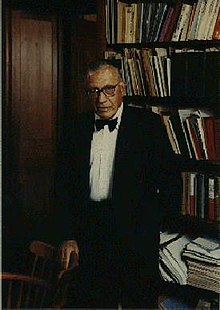John Thomas Dunlop
| John T. Dunlop | |
|---|---|

The official portrait of John T. Dunlop hangs in the Department of Labor
|
|
| 14th United States Secretary of Labor | |
|
In office March 18, 1975 – January 31, 1976 |
|
| President | Gerald Ford |
| Preceded by | Peter J. Brennan |
| Succeeded by | W. J. Usery, Jr. |
| Personal details | |
| Born |
July 5, 1914 Placerville, California, United States |
| Died | October 2, 2003 (aged 89) Boston, Massachusetts, United States |
| Political party | Independent |
| Spouse(s) | Dorothy Webb Dunlop |
| Children | John Barret Dunlop Beverly Clarie Dunlop Thomas Frederick Dunlop |
| Parents | John W. Dunlop Antonia D. Forni |
| Alma mater | University of California, Berkeley (BA, MA, PhD) |
| Religion | Presbyterian |
John Thomas Dunlop (July 5, 1914 – October 2, 2003) was an American administrator and labor scholar.
Dunlop was the United States Secretary of Labor between 1975 and 1976. He was Director of the U.S. Cost of Living Council from 1973–1974, Chairman of the U.S.Commission on the Future of Worker/Management Relations from 1993–1995 and arbitrator and impartial chairman of various U.S. labor-management committees, and also member of numerous government boards on industrial relations disputes and economic stabilization programs.
A labor economist, Dunlop received his Ph.D. from the University of California Berkeley in 1939. He taught at Harvard University from 1938 until his retirement as Lamont University Professor in 1984. While at Harvard, he was Chairman of the Economics Department from 1961–1966 and Dean of the Faculty of Arts and Sciences from 1969-1973.
Dunlop came to be recognized in the postwar United States as the most influential figure in the field of industrial relations. Though primarily a labor economist and later an academic dean at Harvard University, Dunlop carried out advisory roles in every U.S. Presidential Administration from Franklin D. Roosevelt to Bill Clinton. He mediated and arbitrated disputes in a wide variety of industries and over a range of issues in the formative post-World War II period. He also influenced the study of industrial and labor relations with his framework of an “industrial relations system” that arose from his scholarly as well as applied work. In looking back at his own legacy, Dunlop regarded himself fundamentally as a problem solver with an abiding interest in the workplace.
Among the numerous books Dunlop wrote are Industrial Relations Systems (1958, 1993); Industrialism and Industrial Man (1960, joint author); Labor and the American Community (1970, with Derek C. Bok); Dispute Resolution, Negotiation and Consensus Building (1984); and The Management of Labor Unions (1990).
Dunlop was born in the northern California town of Placerville, 45 miles east of Sacramento, where his family owned a pear ranch. Devoted Presbyterian missionaries, his parents moved to the Philippines when Dunlop was four years old, the eldest of a family that grew to seven children. He was raised and educated on the island of Cebu, and remained there until his graduation from high school. Following graduation, Dunlop returned to the US with his older brother in order to enroll in college. He was initially rejected from the University of California Berkeley because of his unusual high school background and enrolled instead in 1931 at Marin Junior College, a community college in northern California.
...
Wikipedia
